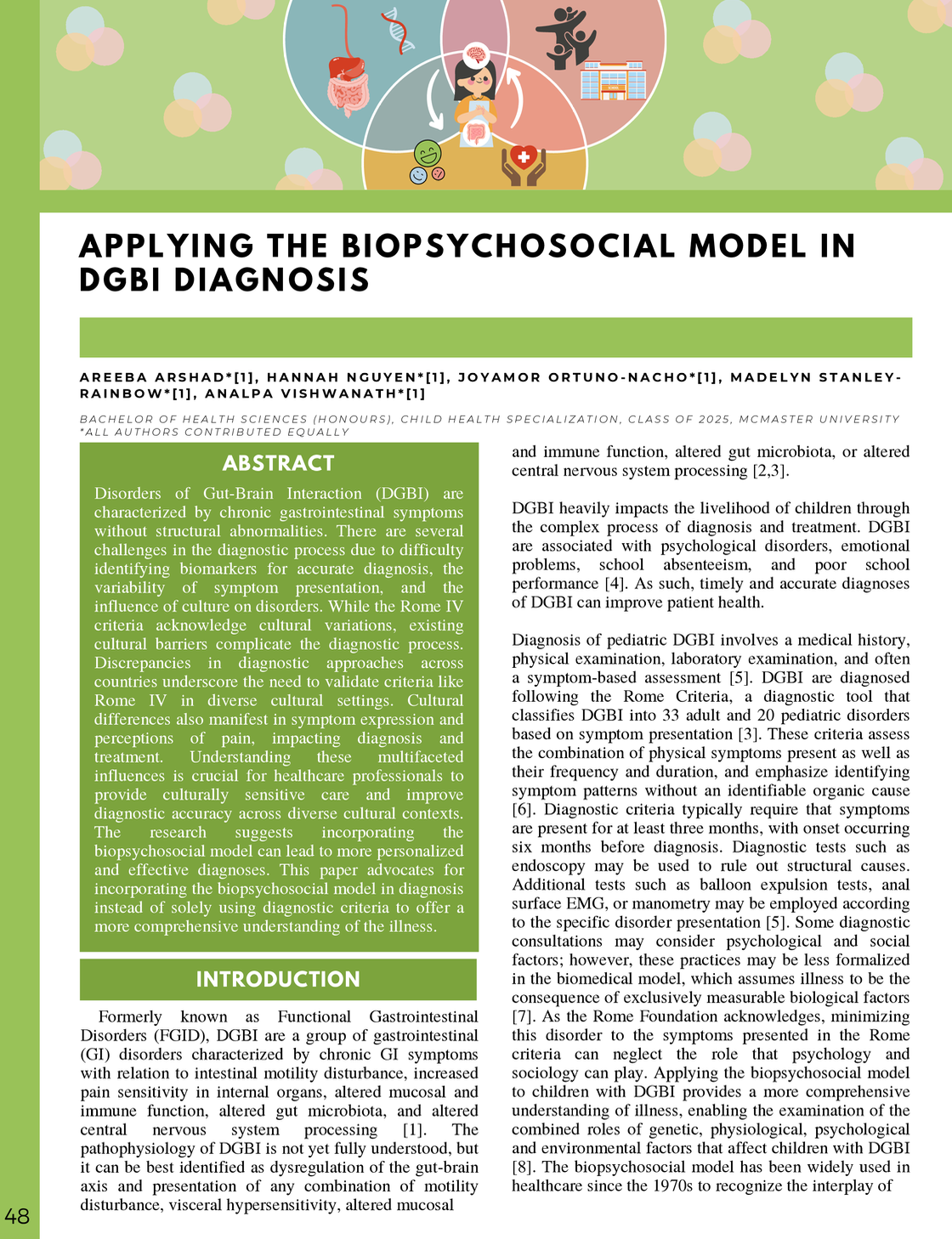Applying the Biopsychosocial Model in DGBI Diagnosis
DOI:
https://doi.org/10.15173/child.v3i1.3905Abstract
Disorders of Gut-Brain Interaction (DGBI) are characterized by chronic gastrointestinal symptoms without structural abnormalities. There are several challenges in the diagnostic process due to difficulty identifying biomarkers for accurate diagnosis, the variability of symptom presentation, and the influence of culture on disorders. While the Rome IV criteria acknowledge cultural variations, existing cultural barriers complicate the diagnostic process. Discrepancies in diagnostic approaches across countries underscore the need to validate criteria like Rome IV in diverse cultural settings. Cultural differences also manifest in symptom expression and perceptions of pain, impacting diagnosis and treatment. Understanding these multifaceted influences is crucial for healthcare professionals to provide culturally sensitive care and improve diagnostic accuracy across diverse cultural contexts. The research suggests incorporating the biopsychosocial model can lead to more personalized and effective diagnoses. This paper advocates for incorporating the biopsychosocial model in diagnosis instead of solely using diagnostic criteria to offer a more comprehensive understanding of the illness.

